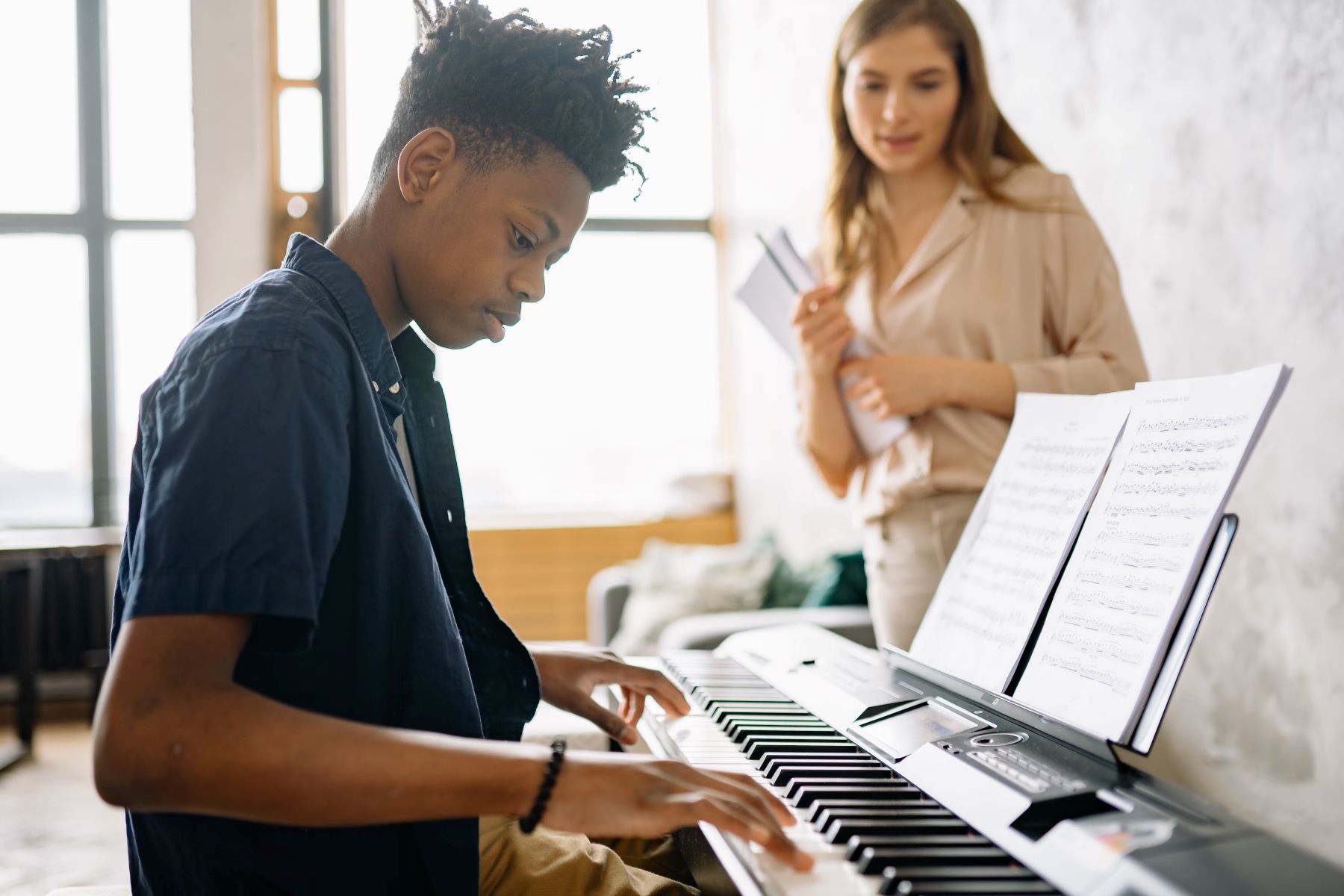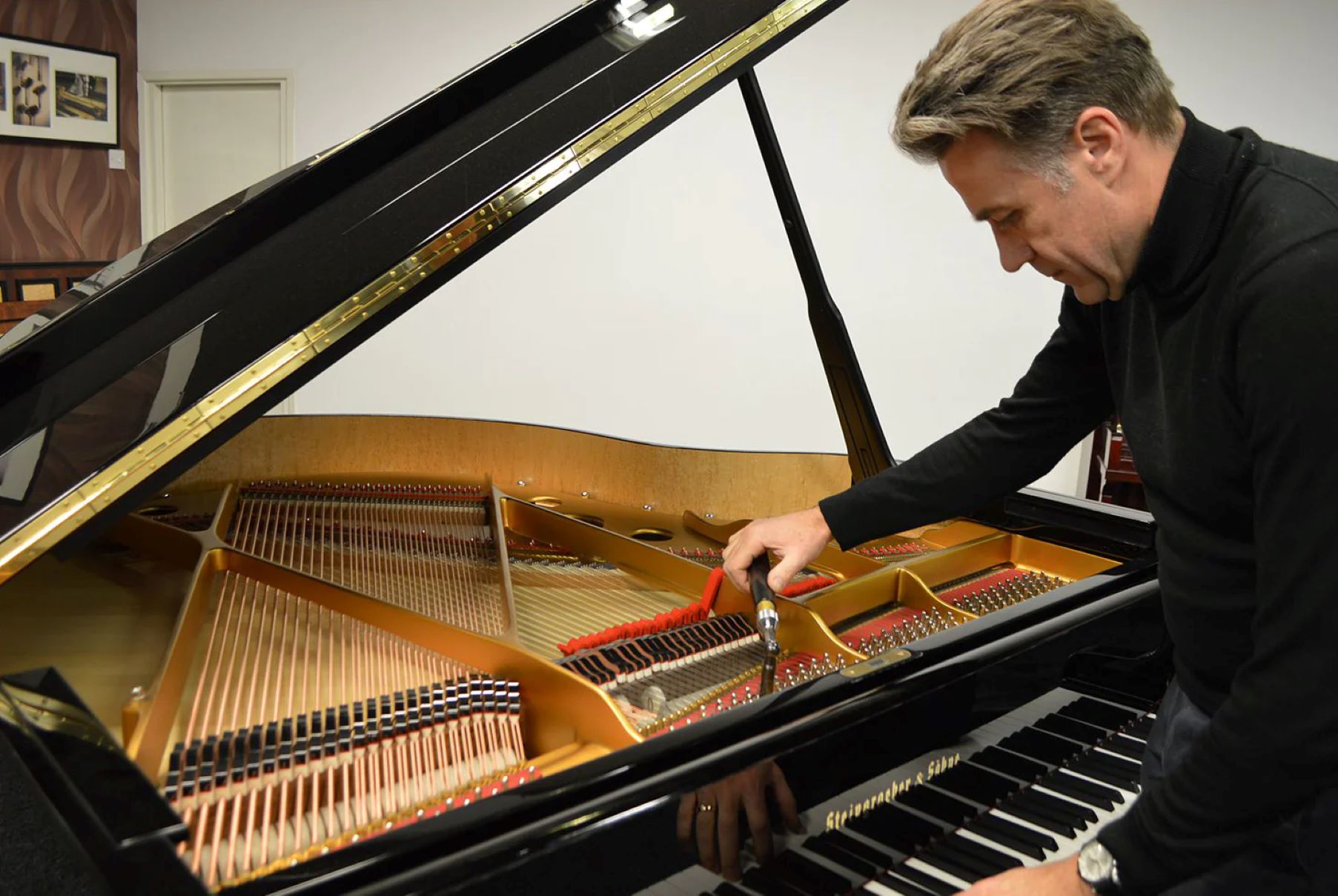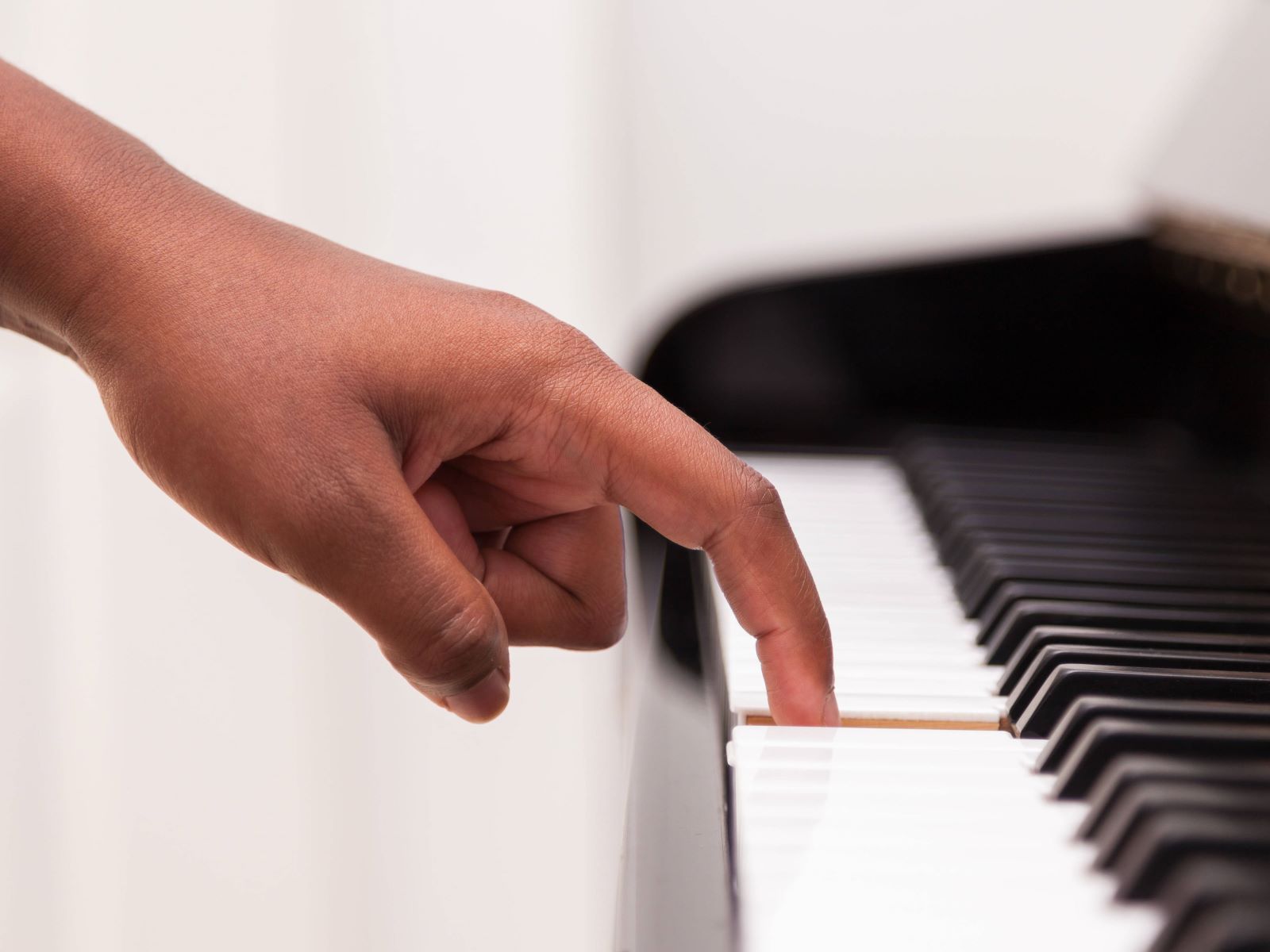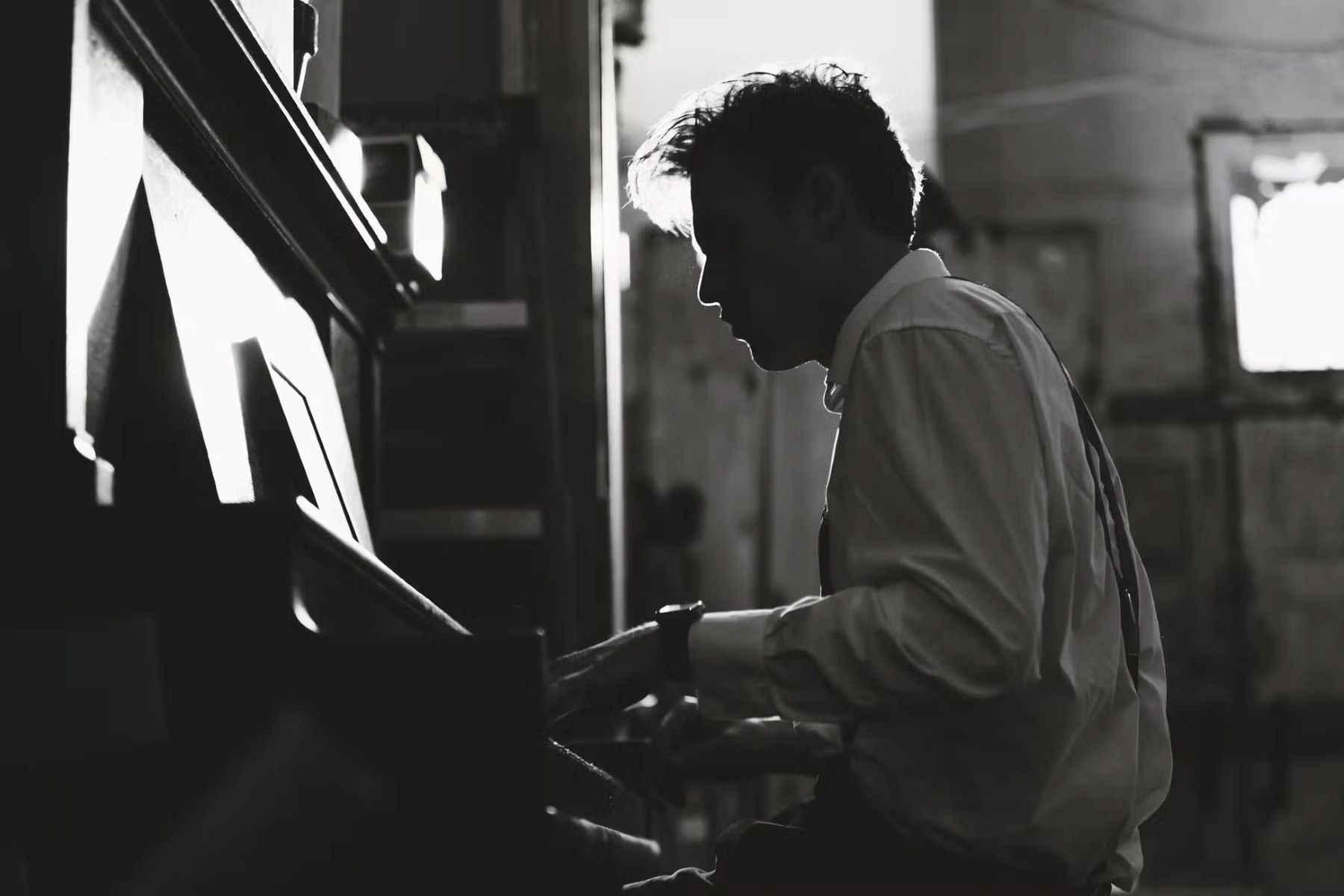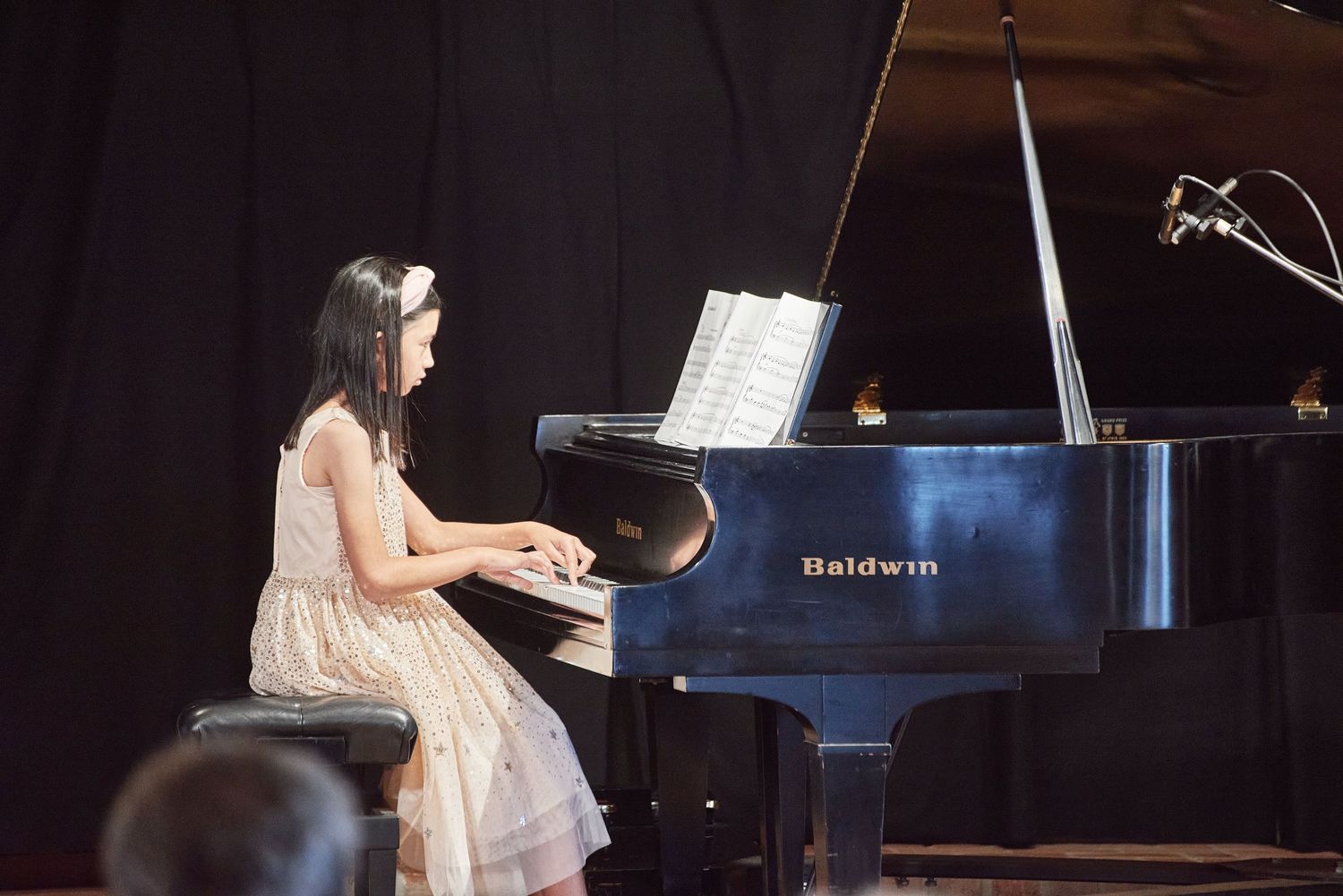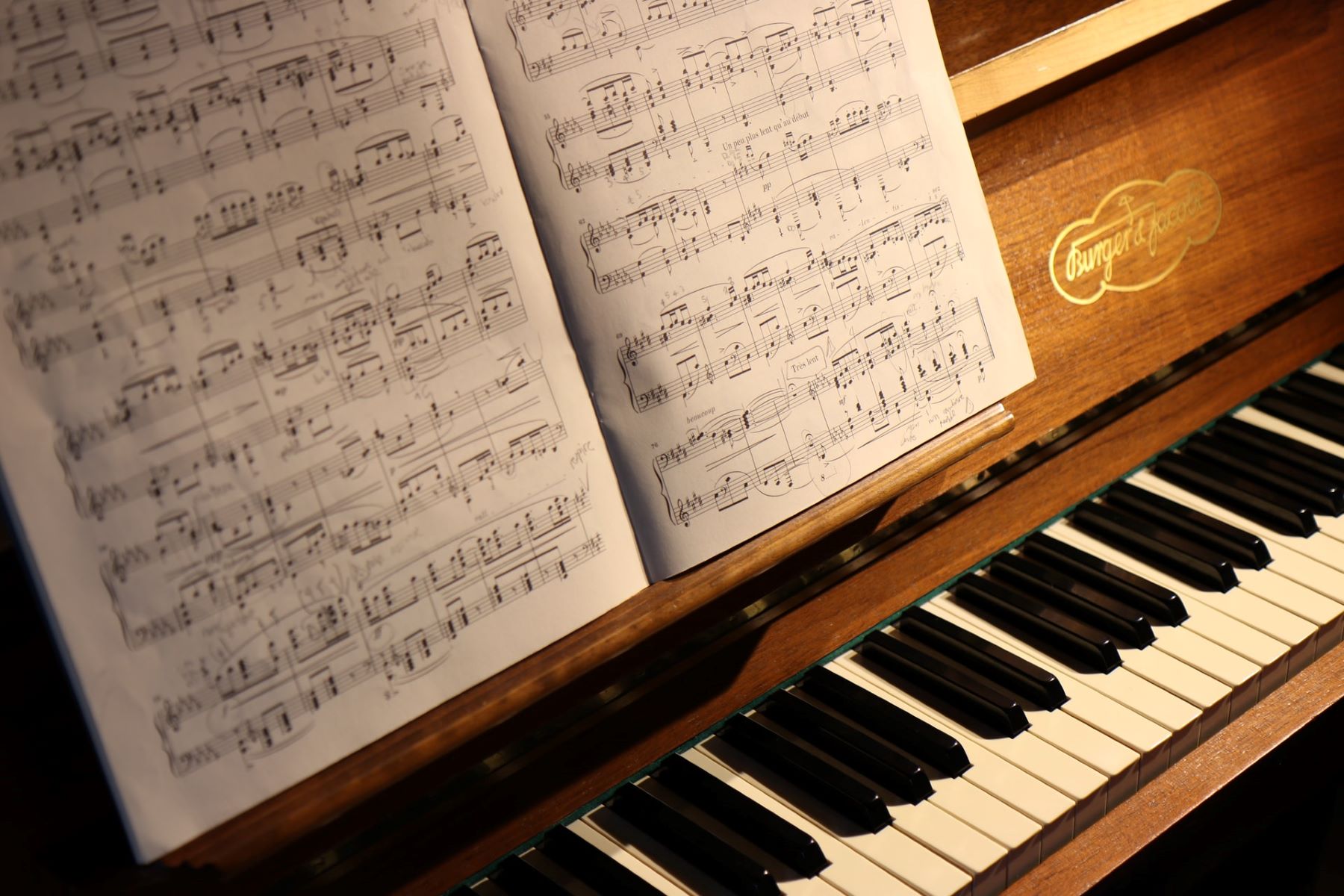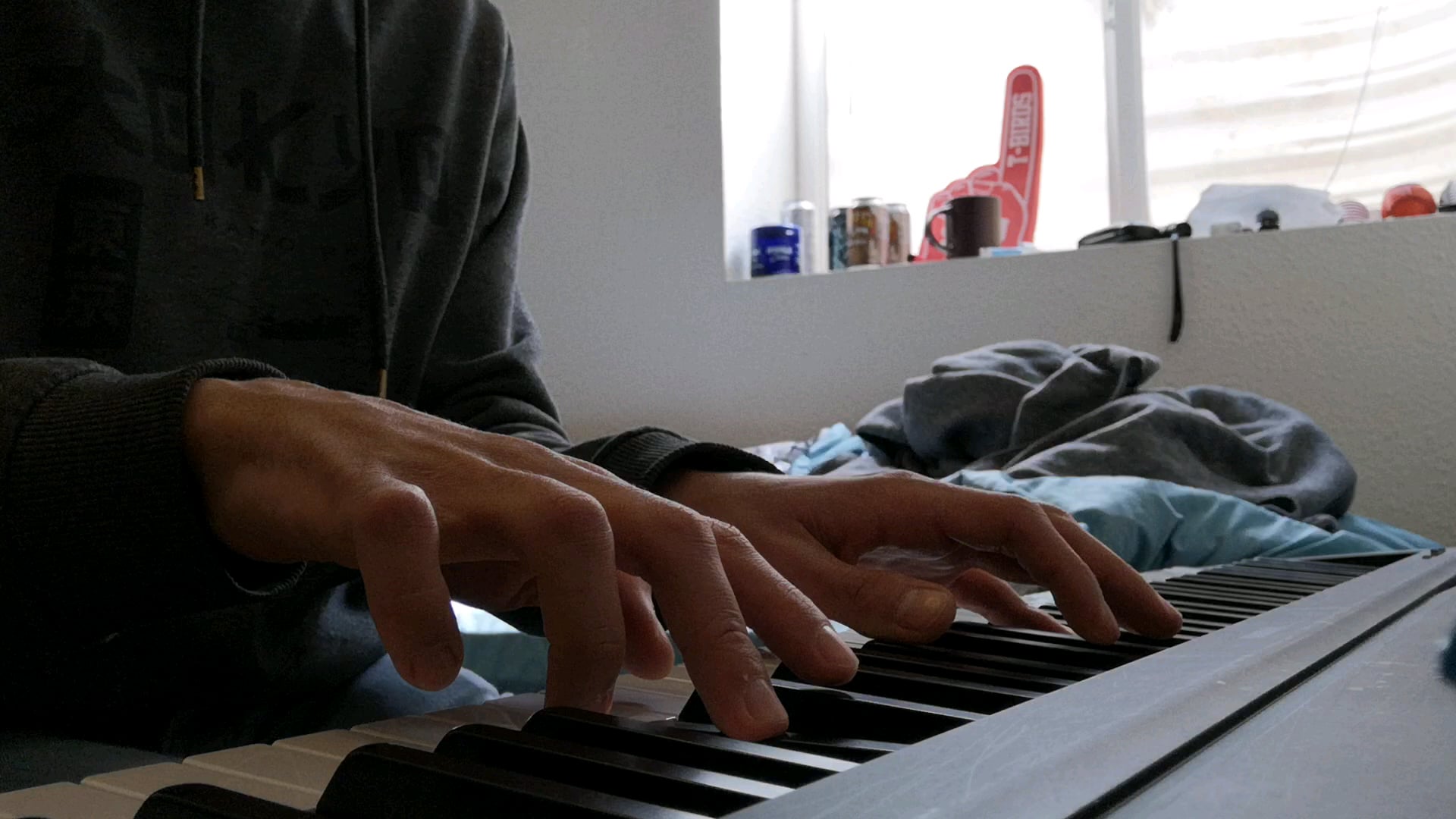Home>Instruments>Piano>How To Be A Piano Teacher
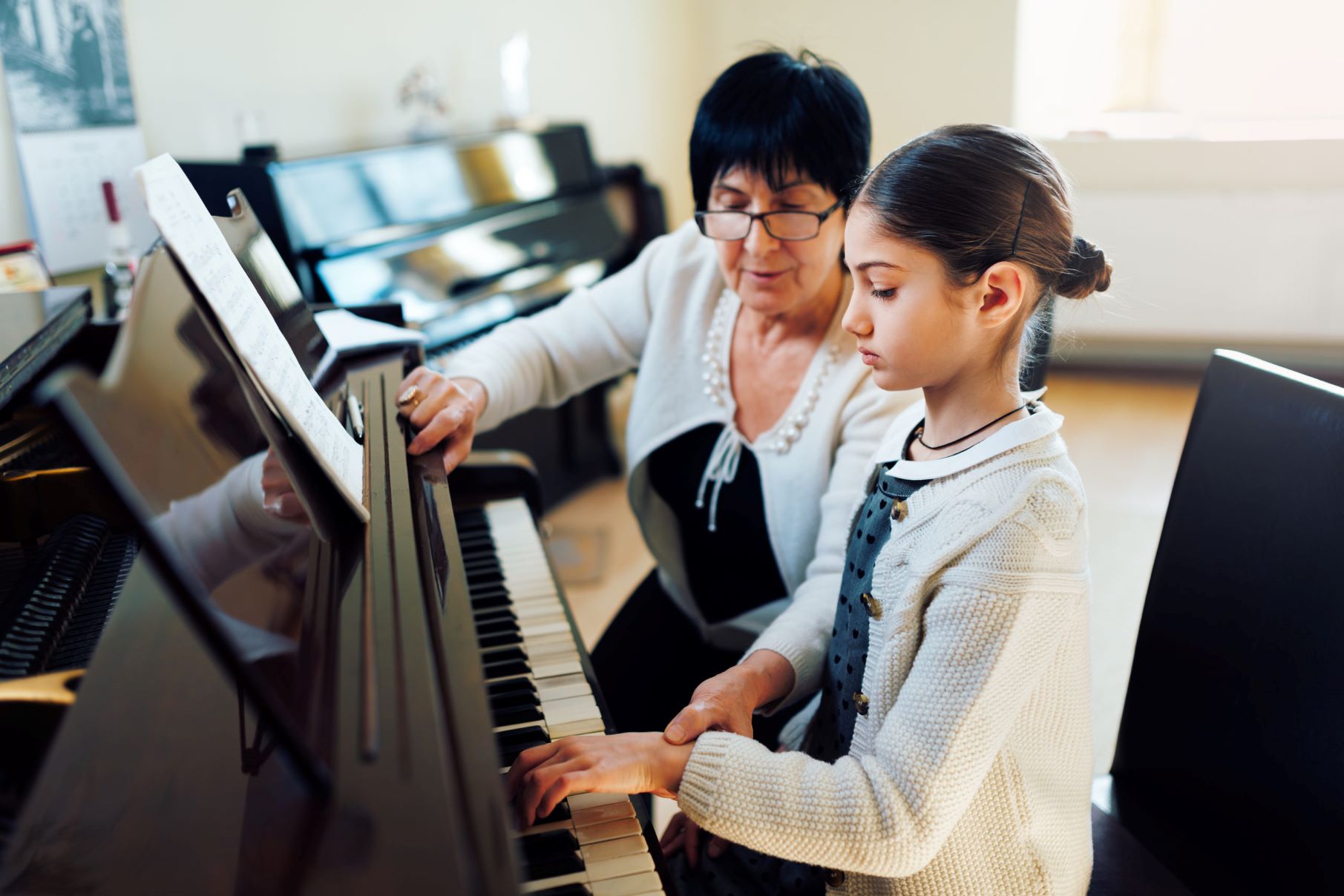

Piano
How To Be A Piano Teacher
Published: February 10, 2024
Learn how to become a successful piano teacher with our comprehensive guide. Discover essential tips and resources for teaching piano effectively.
(Many of the links in this article redirect to a specific reviewed product. Your purchase of these products through affiliate links helps to generate commission for AudioLover.com, at no extra cost. Learn more)
Table of Contents
Introduction
Introduction
Teaching piano can be an incredibly rewarding career, offering the opportunity to share the joy of music with others and make a meaningful impact on students' lives. As a piano teacher, you have the privilege of guiding individuals of all ages and skill levels on their musical journey, fostering their creativity, discipline, and passion for music. Whether you are a seasoned pianist looking to transition into teaching or a music enthusiast embarking on a new career path, becoming a piano teacher requires a blend of musical proficiency, pedagogical skills, and entrepreneurial acumen.
In this comprehensive guide, we will explore the multifaceted role of a piano teacher, from acquiring the necessary education and training to developing effective teaching techniques, building a student base, and establishing a successful teaching studio. Additionally, we will delve into the financial and operational aspects of managing a teaching business, as well as the importance of ongoing professional development in staying abreast of pedagogical advancements and musical trends.
Embarking on the journey to become a piano teacher entails not only a deep love for music but also a commitment to nurturing and inspiring the next generation of pianists. Throughout this guide, we will provide valuable insights, practical tips, and resources to support aspiring piano teachers in honing their craft, fostering a thriving student community, and navigating the business side of music education. Whether you aspire to teach in a traditional studio setting, offer online lessons, or a combination of both, this guide will equip you with the knowledge and tools to embark on a fulfilling and successful career as a piano teacher.
Education and Training
Aspiring piano teachers typically begin their journey by pursuing a formal education in music, with a focus on piano performance and pedagogy. A solid foundation in music theory, ear training, sight-reading, and ensemble playing is essential for developing a comprehensive understanding of music and honing the technical and interpretive skills required to excel as a pianist and instructor.
Many prospective piano teachers pursue undergraduate and graduate degrees in music, specializing in piano performance or pedagogy. These programs often include coursework in music history, music education, piano literature, and teaching methodologies, providing aspiring educators with a well-rounded education that encompasses both performance and pedagogical expertise.
Supplementing formal education with private instruction from accomplished pianists and pedagogues can further enhance a prospective teacher’s musical and teaching abilities. Mentoring relationships with experienced educators can offer invaluable insights into effective teaching techniques, repertoire selection, student motivation, and the art of cultivating a supportive and nurturing learning environment.
Additionally, obtaining certification from reputable music education organizations, such as the Music Teachers National Association (MTNA) or the Royal Conservatory of Music, can lend credibility to a piano teacher’s qualifications and demonstrate a commitment to upholding high standards of musical excellence and pedagogical proficiency. These certifications often involve rigorous testing and assessment of musical knowledge, teaching skills, and pedagogical understanding, serving as a testament to a teacher’s competence and dedication to ongoing professional development.
Continuous engagement with the broader musical community, such as attending workshops, masterclasses, and pedagogical conferences, can further enrich a piano teacher’s knowledge and teaching repertoire. Staying abreast of current trends in music education, incorporating innovative teaching methodologies, and exploring diverse musical genres can invigorate one’s approach to teaching and inspire students to explore their musical potential with enthusiasm and creativity.
Ultimately, a well-rounded education and ongoing training are foundational pillars for aspiring piano teachers, equipping them with the knowledge, skills, and inspiration to embark on a fulfilling and impactful career in music education.
Developing Teaching Skills
Effective piano teaching requires a multifaceted skill set that extends beyond musical proficiency to encompass pedagogical expertise, interpersonal communication, and the ability to tailor instruction to each student’s unique learning style and aspirations. Aspiring piano teachers can cultivate and refine their teaching skills through a combination of practical experience, mentorship, and ongoing professional development.
One of the fundamental elements of effective teaching is the ability to create a supportive and nurturing learning environment that fosters creativity, discipline, and a passion for music. Developing strong interpersonal skills and empathy enables piano teachers to connect with their students on a personal level, understand their motivations and challenges, and provide guidance and encouragement tailored to individual needs.
Adapting teaching strategies to accommodate diverse learning styles and abilities is paramount in engaging and empowering students. Whether teaching young beginners, intermediate players, or advanced students, the ability to modify instructional approaches, repertoire selection, and practice techniques to suit each student’s developmental stage and musical interests is essential for fostering a positive and enriching learning experience.
Effective communication and feedback are integral components of successful piano instruction. Cultivating the ability to articulate musical concepts, demonstrate technical skills, and provide constructive feedback in a clear, supportive manner empowers students to grasp musical concepts, refine their technique, and develop a deeper appreciation for their musical journey.
Mentorship from experienced educators and ongoing professional development play a pivotal role in honing teaching skills. Engaging in peer observation, participating in pedagogical workshops, and seeking guidance from seasoned mentors provide valuable opportunities for self-reflection, skill refinement, and exposure to innovative teaching methodologies.
Embracing technological advancements in music education, such as utilizing interactive learning platforms, educational apps, and digital resources, can enhance a piano teacher’s ability to engage and motivate students in a technologically driven world. Integrating multimedia tools and online resources can enrich the learning experience, facilitate practice, and expand students’ musical horizons.
Continual self-assessment, receptivity to feedback, and a commitment to ongoing growth and learning are essential for developing and refining teaching skills. Embracing a growth mindset and a passion for nurturing musical talent empowers piano teachers to inspire and guide students on a transformative musical journey.
Building a Student Base
Establishing a thriving student base is a pivotal aspect of a piano teacher’s career, enabling them to share their passion for music with eager learners and cultivate a vibrant musical community. Building a strong student roster requires a strategic approach that encompasses effective marketing, networking, and a commitment to providing exceptional musical instruction.
Creating a compelling and professional online presence is essential for attracting prospective students. Developing a user-friendly website that showcases the teacher’s qualifications, teaching philosophy, student achievements, and studio policies can serve as a powerful marketing tool. Additionally, leveraging social media platforms, online directories, and community forums can expand the teacher’s reach and visibility within the local and global music community.
Networking within the local community and forging partnerships with schools, music stores, and community organizations can yield valuable opportunities to connect with potential students. Offering introductory workshops, recitals, and community outreach programs can raise awareness of the teacher’s expertise and foster meaningful connections with students and parents.
Providing exceptional musical instruction and cultivating a positive learning environment are fundamental to retaining students and fostering word-of-mouth referrals. Tailoring instruction to each student’s goals, nurturing their musical growth, and celebrating their achievements can inspire loyalty and enthusiastic recommendations from satisfied students and their families.
Offering trial lessons, hosting open houses, and providing incentives for referrals can attract new students and provide them with a firsthand experience of the teacher’s teaching style and studio environment. Additionally, offering flexible lesson scheduling, accommodating diverse learning preferences, and providing performance opportunities can enhance the appeal of the teacher’s studio and attract a diverse student demographic.
Engaging in community performances, collaborating with other musicians, and participating in musical events can raise the teacher’s profile and showcase their dedication to musical excellence. Active involvement in the local music scene can foster connections with fellow musicians, students, and music enthusiasts, contributing to a robust and dynamic student base.
Ultimately, cultivating a thriving student base requires a blend of strategic marketing, exceptional teaching, community engagement, and a genuine passion for nurturing musical talent. By embracing these principles, piano teachers can establish a vibrant and flourishing studio that enriches the lives of students and contributes to the cultural tapestry of the community.
Setting Up a Teaching Studio
Establishing a conducive and inspiring teaching studio is essential for creating an environment where students can thrive, explore their musical potential, and develop a deep love for the piano. Whether setting up a home studio or leasing a commercial space, careful attention to the physical layout, equipment, and ambiance is pivotal in fostering a positive and enriching learning experience for students.
When designing a teaching studio, it is important to prioritize functionality, comfort, and aesthetics. Selecting an appropriate space with adequate natural light, ventilation, and acoustic considerations can contribute to a conducive learning environment. Additionally, ensuring that the studio is equipped with a well-maintained and tuned piano, comfortable seating, and adequate space for movement and instruction is essential for facilitating effective lessons.
Creating a welcoming and organized studio layout that minimizes distractions and promotes focus is paramount for optimizing the learning experience. Organizing the space with musical resources, educational materials, and inspirational decor can cultivate a stimulating and inviting atmosphere that ignites students’ passion for music and learning.
Embracing technology in the teaching studio can enhance the learning experience and expand instructional possibilities. Integrating audio-visual equipment, recording devices, and interactive learning tools can augment the teaching process, facilitate practice sessions, and provide students with innovative learning opportunities.
Establishing clear studio policies, including lesson scheduling, tuition, attendance, and practice expectations, is essential for maintaining a structured and professional learning environment. Communicating these policies effectively to students and parents fosters transparency, accountability, and a harmonious teacher-student-parent relationship.
Implementing a comprehensive studio management system that encompasses student enrollment, progress tracking, and communication can streamline administrative tasks and enhance the overall efficiency of the teaching studio. Leveraging digital tools and software to manage scheduling, billing, and student communication can optimize the teacher’s time and resources, allowing them to focus on delivering exceptional instruction.
Creating a sense of community within the teaching studio by organizing recitals, ensemble opportunities, and collaborative projects can enrich students’ musical experience and foster a supportive and inclusive studio culture. Providing performance opportunities and celebrating student achievements can inspire motivation, confidence, and a sense of belonging within the musical community.
Ultimately, setting up a teaching studio involves a thoughtful blend of physical design, technological integration, administrative organization, and community engagement. By prioritizing these elements, piano teachers can create a nurturing and dynamic studio environment that empowers students to thrive and cultivate a lifelong passion for music.
Managing Finances and Business Operations
Running a successful piano teaching business necessitates adept financial management and astute business acumen. From setting competitive tuition rates to maintaining accurate financial records and cultivating a sustainable business model, piano teachers must navigate various aspects of financial planning and operational management to ensure the longevity and prosperity of their teaching endeavors.
Establishing transparent and competitive tuition rates that reflect the teacher’s expertise, experience, and the prevailing market conditions is essential for sustaining a viable teaching business. Conducting thorough market research, benchmarking against local competitors, and considering the unique value proposition of the teacher’s studio can inform strategic pricing decisions that balance affordability with the teacher’s professional worth.
Implementing a robust billing and payment system that accommodates diverse payment methods, facilitates timely invoicing, and ensures consistent revenue streams is critical for maintaining financial stability. Leveraging digital payment platforms, automated billing systems, and clear payment policies can streamline financial transactions and minimize administrative overhead.
Maintaining meticulous financial records, including income, expenses, and tax-related documentation, is imperative for fiscal accountability and compliance. Utilizing accounting software, hiring professional bookkeeping services, or seeking guidance from financial advisors can facilitate accurate record-keeping and financial transparency, enabling the teacher to make informed business decisions and adhere to regulatory requirements.
Developing a comprehensive business plan that outlines short-term and long-term goals, marketing strategies, and financial projections can provide a roadmap for sustainable growth and strategic decision-making. Continual assessment of the business’s financial performance, student retention rates, and market trends can inform adaptive business strategies and operational refinements.
Investing in professional liability insurance and securing legal counsel to address contractual agreements, liability considerations, and intellectual property protection can safeguard the teacher’s business interests and mitigate potential risks associated with teaching and studio operations.
Engaging in ongoing professional development, such as business management workshops, entrepreneurial courses, and financial literacy training, can enhance the teacher’s acumen in financial planning, marketing, and operational efficiency. Embracing a proactive approach to business education equips piano teachers with the knowledge and skills to navigate the dynamic landscape of music education and entrepreneurship.
Ultimately, effective financial management and astute business operations are integral to sustaining a thriving piano teaching business. By embracing sound financial practices, strategic planning, and a commitment to ongoing professional development, piano teachers can cultivate a resilient and prosperous teaching enterprise that enriches the lives of students and contributes to the cultural tapestry of the community.
Continuing Education and Professional Development
Embracing a commitment to lifelong learning and professional growth is paramount for piano teachers seeking to enrich their pedagogical expertise, expand their musical horizons, and stay abreast of evolving educational methodologies. Continual engagement in professional development opportunities, pursuit of advanced certifications, and immersion in diverse musical experiences are instrumental in nurturing a dynamic and progressive approach to music education.
Participation in pedagogical workshops, music conferences, and continuing education programs tailored to piano instruction allows teachers to explore innovative teaching methodologies, exchange insights with peers, and gain exposure to emerging trends in music education. Engaging with esteemed pedagogues, music scholars, and industry experts through these platforms can inspire fresh perspectives, invigorate teaching approaches, and foster a spirit of collaboration within the broader music education community.
Pursuing advanced certifications and credentials in piano pedagogy, music theory, and performance from reputable institutions and professional organizations demonstrates a commitment to excellence and continuous improvement. Rigorous certification programs often encompass comprehensive assessments of teaching proficiency, musical knowledge, and pedagogical acumen, empowering teachers to elevate their credentials and expertise in the field of music education.
Exploring interdisciplinary collaborations and cross-disciplinary studies can enrich a piano teacher’s pedagogical toolkit and broaden their understanding of music’s interconnectedness with other art forms and academic disciplines. Embracing interdisciplinary learning opportunities can inspire innovative instructional approaches, cultivate a holistic understanding of music, and foster a multidimensional approach to nurturing students’ artistic and intellectual growth.
Engaging in ongoing musical enrichment through performance, composition, and scholarly research can invigorate a teacher’s musical sensibilities and deepen their artistic insight. Actively participating in recitals, chamber music ensembles, and collaborative projects not only enhances the teacher’s musicianship but also serves as a source of inspiration and mentorship for their students, exemplifying a lifelong dedication to musical excellence.
Embracing technological advancements in music education and integrating digital resources, interactive learning platforms, and innovative teaching tools can expand a teacher’s instructional repertoire and enhance the learning experience for students. Staying abreast of technological trends and leveraging digital resources can empower teachers to engage students in a technologically driven learning landscape and adapt to evolving educational paradigms.
Ultimately, a steadfast dedication to continuing education and professional development empowers piano teachers to evolve as dynamic and forward-thinking educators, enriching their teaching practice and inspiring students to embark on a transformative musical journey. By embracing a spirit of lifelong learning and exploration, piano teachers can cultivate a vibrant and innovative approach to music education that resonates with students and contributes to the enduring legacy of musical excellence.
Conclusion
Embarking on the journey to become a piano teacher is a profound and multifaceted endeavor that intertwines musical artistry, pedagogical mastery, and entrepreneurial acumen. Aspiring piano teachers are entrusted with the noble task of nurturing the musical potential of students, fostering a love for music, and shaping the next generation of pianists. This comprehensive guide has illuminated the diverse facets of the piano teaching profession, encompassing the foundational pillars of education and training, the cultivation of teaching skills, the establishment of a thriving student base, the creation of a conducive teaching studio, and the astute management of finances and business operations.
Education and training serve as the bedrock of a piano teacher’s expertise, encompassing formal music education, private instruction, and certification from esteemed music education organizations. Developing teaching skills involves a nuanced blend of pedagogical prowess, interpersonal communication, and adaptability to diverse learning styles, fostering a supportive and enriching learning environment for students.
Building a vibrant student base requires strategic marketing, community engagement, and a dedication to providing exceptional musical instruction, culminating in a thriving and inclusive studio community. Setting up a teaching studio involves meticulous attention to physical design, technological integration, and administrative organization, fostering an inspiring and conducive environment for musical exploration and growth.
Managing finances and business operations entails astute financial planning, transparent billing practices, and a strategic approach to sustaining a viable teaching enterprise, ensuring the longevity and prosperity of the teacher’s studio. Continuing education and professional development serve as catalysts for pedagogical innovation, musical enrichment, and the cultivation of a dynamic and forward-thinking approach to music education.
Aspiring piano teachers are called to embrace a holistic and multifaceted approach to their craft, intertwining musical artistry, pedagogical expertise, and entrepreneurial acumen to foster a nurturing and transformative learning experience for students. By embodying a steadfast commitment to ongoing growth, artistic excellence, and the cultivation of a vibrant and inclusive musical community, piano teachers can embark on a fulfilling and impactful career dedicated to the enduring legacy of musical artistry and education.
Ultimately, the journey to become a piano teacher is a profound and transformative odyssey, marked by a dedication to musical excellence, pedagogical innovation, and the enduring legacy of inspiring the next generation of musicians. It is a journey imbued with the profound privilege of shaping minds, nurturing talent, and kindling the transformative power of music in the hearts of students.


